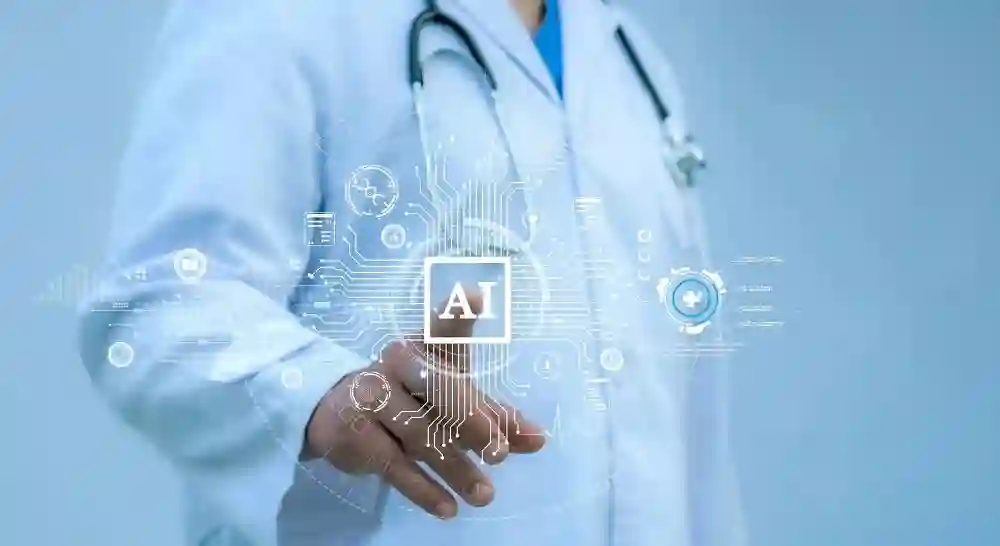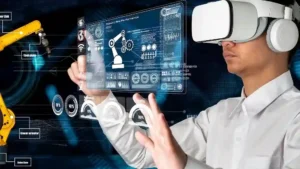The Role of AI in Modern Medicine

Okay, let’s be real here—AI in medicine? It’s not just some cool tech that nerds rave about anymore. It’s transforming healthcare in ways that I never thought possible. I mean, from diagnosing diseases in seconds to developing personalized treatment plans, AI is practically the new rockstar in the medical world. So, let’s take a little journey through what AI is really doing for modern medicine and how it’s changing the game for doctors and patients alike. Buckle up, folks.
What Even is AI in Medicine?
Alright, AI in medicine sounds fancy, but what does it actually mean? At its core, AI is all about machines thinking and learning like humans. It processes huge chunks of data, analyzes patterns, and then makes decisions based on that info. It’s kind of like that one friend who just seems to know things (but, like, way smarter and less annoying).
But how does this play out in the medical field?
Diagnostics: The AI Miracle Worker
Now, I don’t know about you, but I’ve had my fair share of waiting rooms, just staring at that awkward “please wash your hands” sign while worrying if the doctor will remember me. AI is here to change that whole experience. No more waiting for forever to get test results.
AI-powered diagnostics can pull in massive amounts of patient data in the blink of an eye. We’re talking about medical records, lab results, scans—everything. The AI then sifts through this info like a detective, connecting the dots that might’ve taken a human hours or days to spot. Talk about efficiency.
AI’s Speedy Diagnosis: Is This Magic?
You know that feeling when you’re staring at a test result, just waiting for someone to give you the green light or the bad news? AI can speed that up. Like, way faster than I could ever process it. It can help doctors spot diseases way earlier, and that can make all the difference.
Take, for example, cancer detection. You’ve probably heard about AI diagnosing skin cancer by analyzing photos of suspicious moles—way quicker and (allegedly) more accurately than some docs. I mean, if it can spot a mole before it gets out of hand, that’s a pretty big win for everyone.
AI + Medical Imaging = A Match Made in Data Heaven
So, let’s talk about medical imaging. You’ve probably heard of MRI scans, X-rays, and CT scans, right? They’ve been around forever, but the way AI handles these images is a game-changer. No more squinting at blurry images like you’re looking through a foggy windshield.
AI’s magic sauce? It looks at scans and finds problems you didn’t even know were there. Whether it’s tumors, fractures, or other irregularities, AI is better at spotting those things than humans. It’s like that one friend who notices everything—“Hey, you have a little spinach in your teeth, by the way…” Yeah, that kind of attention to detail.
So What Does This Mean for Your Doctor?
With AI getting its hands on all these images and analyzing them like a seasoned pro, doctors get to do what they do best—use their expertise to figure out the best treatment for the patient. AI doesn’t replace them. It just gives them a wicked assistant. And who doesn’t need one of those, right?
Personalized Medicine: The AI Prescription
Here’s where it gets cool (and a little sci-fi): AI is making medicine personal. Like, really personal. No, it’s not just about getting a prescription for what’s ailing you—it’s about customizing treatments based on your DNA, lifestyle, and, uh, even how much you like running (or not).
AI looks at your entire health profile and spits out the most effective treatment for you. Imagine having a doctor that knows your body like the back of their hand… because, in a way, AI helps them do that.
But What Does This Look Like in Real Life?
Let’s get real for a second. My first herb garden died faster than my 2020 sourdough starter—RIP, Gary. But hey, that’s not what AI is all about. When it comes to medicine, AI can take your genetic data and match it with treatments that are most likely to work. No more “trial and error” when you’re dealing with chronic conditions. That’s huge.
AI doesn’t just guess what could work; it actually knows based on your unique makeup. Want to make sure your cancer treatment is the right one? AI’s got you covered. It’s like having a medical genie who knows exactly what you need.
The Role of AI in Drug Discovery: Fast-Tracking Cures
You ever think about how long it takes to get a new drug on the market? It’s ridiculous. And I’m not talking about the “I ordered a pizza two hours ago” kind of ridiculous. I’m talking about years. But now, AI is coming in like a wrecking ball (in a good way) and speeding things up.
AI’s Drug Discovery Speedrun
It’s like a speed run in a video game, except instead of grabbing coins, AI’s looking through mountains of data, trying to find the next big cure. Whether it’s analyzing genetic information or testing out different compounds, AI’s the one going through the rough drafts so researchers don’t have to.
You know what’s crazy? AI can even predict how a drug will interact with the human body—before it’s even tested. Seriously, how cool is that? Less time, less guesswork, and—hopefully—more cures.
Surgery and AI: The Robo-Doc of Tomorrow
Alright, brace yourself. Here comes the future. AI-powered robots in the OR? Yup, it’s happening. These robots are like the world’s most precise surgeons—except they don’t take lunch breaks. Not that I blame them. I mean, who wouldn’t want to be a superhuman robot in a high-tech hospital?
AI-Assisted Surgery: Hands-On and Precise
AI can make surgeries less invasive, more precise, and way less risky. Imagine robots handling the tiny, delicate work during a procedure. A tiny cut here, a quick adjustment there, all done with the precision of a surgeon who’s been practicing for decades. Plus, because the robots are that accurate, patients end up recovering faster.
By the way, I saw this one robot perform surgery on a patient with a spinal injury—absolutely mind-blowing. And, guess what? The patient’s walking out of the hospital after a week. That’s not normal, folks. That’s AI-powered medicine.
AI in Telemedicine: Bringing Healthcare to Your Living Room
Okay, we’ve all been there—sitting on hold, waiting to make an appointment, only to realize the waiting room is a month out. Well, AI is stepping in to smooth that out, too. Telemedicine has been on the rise, and AI is playing a massive role in it.
Virtual Healthcare: The Future is Now
Imagine seeing a doctor without leaving your couch. (Well, not exactly without leaving your couch—there’s still the part where you show up, but you get the idea.) With AI-driven telehealth tools, you can get answers to your health questions and even have real-time consultations from the comfort of your home.
Plus, AI can analyze your symptoms, recommend treatment, or send you to the doctor if things look a little sketchy. It’s like having a digital healthcare assistant—minus the human-like small talk.
The Roadblocks of AI in Medicine: Not Everything is Smooth Sailing
AI sounds amazing, right? Well, there are a few hiccups along the way. I mean, no innovation comes without its baggage. From privacy concerns to algorithm biases, AI in medicine has a few roadblocks to overcome.
The Messy Bits of AI in Medicine
- Data Privacy: With AI dealing with all sorts of personal health data, we gotta make sure it’s protected. Can’t have your health records being used like some vending machine, right?
- Bias in Algorithms: If the data going into AI isn’t diverse enough, you might run into biased results. That’s like using a recipe that’s only written for one taste bud—no good for anyone.
Wrapping It All Up: AI’s Future in Medicine
Anyway, here’s the kicker: AI is here to stay, and it’s only going to get better. Whether it’s faster diagnoses, smarter treatment plans, or robots doing surgeries, AI is transforming medicine. It’s not perfect (yet), but the progress we’re making is unreal. So, next time you hear about AI in healthcare, just remember—it’s not some future thing. It’s happening now.
And, yeah, maybe I’ll finally figure out how to grow that herb garden one of these days…







